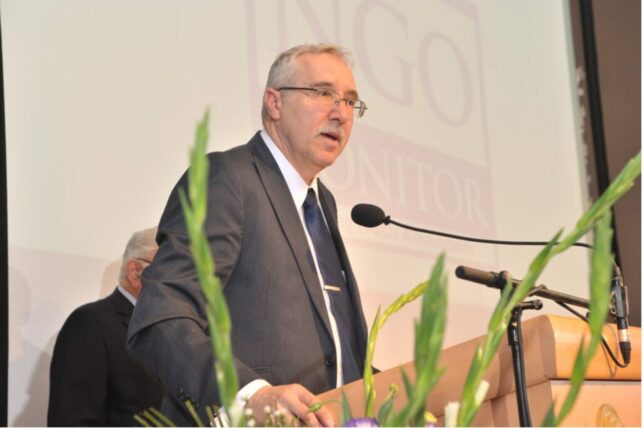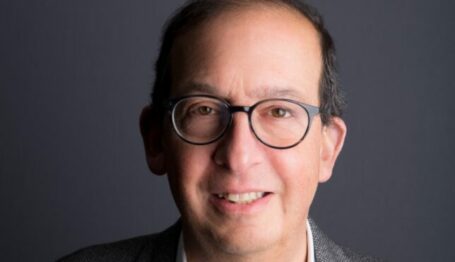Philanthropy
A Conversation with NGO Monitor’s Gerald Steinberg (Part 2 of 2)
The international-relations scholar talks with Michael E. Hartmann about those who fund the anti-Israel NGOs his organization monitors, most prominently including the Rockefeller Brothers Fund, and how private givers and public policymakers could and should consider reacting to the October 7 attack and its aftermath.
 Gerald Steinberg.
Gerald Steinberg.

Gerald Steinberg founded NGO Monitor in Jerusalem after the 2001 United Nations World Conference Against Racism in Durban, South Africa, during which a related NGO Forum of about 1,300 non-governmental organizations (NGOs) adopted a strategy of using the instruments and language of “human rights” and “international law” to isolate and undermine Israel.
A project of the Institute for NGO Research, NGO Monitor researches, publishes books and reports on, and maintains comprehensive databases tracking the government and private philanthropic funding of NGOs at work in and on issues about Israel. Most of these NGOs question and/or attack Israel’s very existence, its legitimacy, its sovereignty, its authority, and its security.
Since the horrific October 7 attack on Israel by Hamas, NGO Monitor has helpfully collected and continues to regularly update many of its resources on and related to what happened.
All funding of NGO Monitor itself is from private donors and foundations. It accepts no government support.
In addition to serving as NGO Monitor’s president, Steinberg is a professor emeritus at Bar Ilan University in Israel. He founded the university’s Program on Conflict Management and Negotiation.
Steinberg was kind enough to join me for a conversation last week. In the first part of our discussion, which is here, he talks about anti-Israel non-governmental organizations’ political power, their fundraising skill, and their culpability for the horrific October 7 attack.
The more than 11-and-a-half-minute video below is the second part, during which he discusses those who fund the anti-Israel NGOs his organization monitors, most prominently including the Rockefeller Brothers Fund, and how private givers and public policymakers could and should consider reacting to the attack and its aftermath.
“What we’re seeing on us campuses today—these pseudo-Jewish organizations that provide a fig leaf, claiming to be Jewish, like Jewish Voice for Peace—got their core funding from Rockefeller Brothers under the framework of promoting peace,” Steinberg tells me. “One of the aspects of that was driving a wedge between the Jewish community and Israel.”
Other philanthropically supported, campus-based groups worthy of note are IfNotNow and Students for Justice in Palestine, he adds.
“We’d be remiss in not talking about other funders as well,” Steinberg adds. “In terms of numbers, the amounts,” George Soros and his giving vehicles “dwarf what Rockefeller Brothers does,” and “if Soros gives, so many other people follow. … Foundations follow. So certainly, we hope that Alex, his son, will take a good look at what that money did and how much antisemitism and violence and hatred that it engendered and enabled.
“The Ford Foundation is in and out lately,” Steinberg notes.
“It is very, very difficult” to suggest good groups doing actual charity in the region, he laments, “because you know the phrase, bad money chases out … good money. It’s the same thing with NGOs. These organizations suck up huge amounts of money.”
As for relevant policy distinctions in the tax treatment of nonprofits, “I think that needs to be looked at in more detail,” Steinberg says.
There’s always a difficult line, but maybe now it’s not so blurry …. Material support for terrorism or various other types of incitement to violence, I think that needs to be looked at carefully, particularly in the case of the donors to Human Rights Watch. I think that’s the most-blatant example …. Perhaps also Amnesty USA needs to be more carefully examined.
This article originally appeared in the Giving Review on October 31, 2023.


